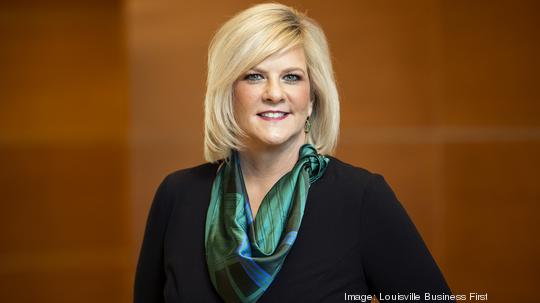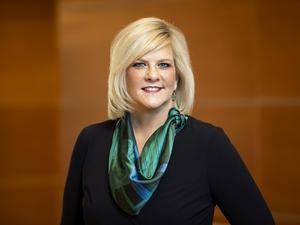
Regulations, money and safety concerns mean change is a slow process for many health care organizations, which is why outside startups are often the ones bringing new ideas — if they can get a meeting.
“The hospital business in not known to be the most innovative or progressive [industry],” ScionHealth CEO Rob Jay said. “I could literally fill up my calendar most days of the week with people pitching ideas, but I just can’t do it.”
But when Jay does sit down with an entrepreneur, he and his colleagues do know what they’re looking for in a pitch — and it may not be what an entrepreneur would expect.
Jay was speaking as part of a panel at CEOc and Aging2.0’s 2023 Optimize [stylized OPTIMIZE] conference for the aging innovation space, held Sept. 27 and 28 at the Kentucky International Convention Center. Joining Jay on stage was Confluent Health founder and Executive Chairman Dr. Larry Benz, Hosparus Health CEO David Cook and LHC Group President and CEO Josh Proffitt.
The powerhouse panel represented some of Louisville’s most successful health care companies. ScionHealth is one of Louisville’s largest employers, according to Louisville Business First research, with 700 local employees, while Confluent Health has grown its presence to 26 states and 424 clinics across the country.
With companies of that size, it can be difficult for an entrepreneur to get in front of an executive and explain why their product can help the executive’s company. But, if the entrepreneur does get a meeting with a large health care provider, the panelists had some advice:
- Know what the company is good and and what it isn’t good at
- Be patient and persistent
- Share personal experiences
- Listen to your audience
- Speak the language
- Know how you can shape the product to the organization
- Less words and more data
- Bring examples
- Make sure it’s scalable
- Make sure it solves a problem
- Come in with more questions than answers
“You may have a solution and you may think, ‘Wow, I know they want to save money,’ and that may be true, but [saving money] may not be the most important thing to me right now,” Cook said. “I think it goes back to passion. What is that provider or that leadership team passionate about, because it’s almost like dating.
"You don’t want to connect with a provider who is half-hearted about your solution. You need them to be really engaged to make it successful.”
The panelists agreed the most important thing to each of them right now is workforce.
The health care industry as a whole is in the grips of a nurse shortage, caused in part by pandemic burnout, an aging patient population and an aging workforce of caregivers. Approximately 1 million registered nurses are expected to leave the profession by 2030, according to a report in Health Affairs.
“[Problem] 1A and 1B is workforce, or people just in general,” Jay said. “The contract labor issues that we faced as an industry were really a symptom of the illness. We had a turnover problem. So how can we keep employees?”
The coalition
Tammy York Day hears about the health care industry’s workforce issues first hand from her board room inside CEOc’s offices.
There, some of the most powerful health care CEOs in Derby City, including Gerard Colman of Baptist Health, Leigh Ann Barney of Trilogy Health Services, Joseph Steier of Signature Health and Bruce Broussard of Humana Inc. (NYSE: HUM), talk about the problems facing their companies and what they need to fix them.
CEOc’s mission is to spur greater economic development in Louisville by establishing it as a center of innovation in the aging care space — but it can’t do that without a workforce.
That’s why CEOc helped create the Healthcare Workforce Innovation Coalition, which is launching its inaugural programs this year. The coalition is made up of nine organizations including Amped, Louisville Urban League, Metro United Way and the University of Louisville.
The coalition received a $40 million grant as part of the American Rescue Plan to tackle the city’s health care workforce issues, including diversity and inclusion. While the project is spearheaded by CEOc, the funds are being distributed to all members of the coalition.
“The health care industry is such a huge economic driver in Louisville and the talent shortage that we’ve experienced in providing care to the most vulnerable populations is part of the ‘why,’ and the problem for one is a solution for the other, and vice a versa,” Day said. “That’s one of the things that excites us. This initiative is industry led, its community supported and its equity focused.”
The core of the program is the Health Career Lab, Day said, where the group recently held its first Skills Training and Readiness Support training, or STARS, which is designed to help those entering the industry or returning to health care. The program provides resume building, interview prep, organizational culture, customer service and technical literacy training.
STARS trains a diverse class of 30 students twice a month. Some members of the first cohort have already received job offers, Day said.
The other program launching out of the coalition is the Collaborative Healthcare Institute for Managerial Excellence, or CHIME. That program collaborates with the region’s largest health care employers to provide a 15-week program for health care professionals poised to grow in their careers. CHIME graduates can earn up to four credit hours from UofL.
“We have so much more to this. … If you just do the numbers, you’ll see why this Healthcare Workforce innovation Coalition is so important and why we planned for it for a year and a half,” Day said. "It is everything.”









